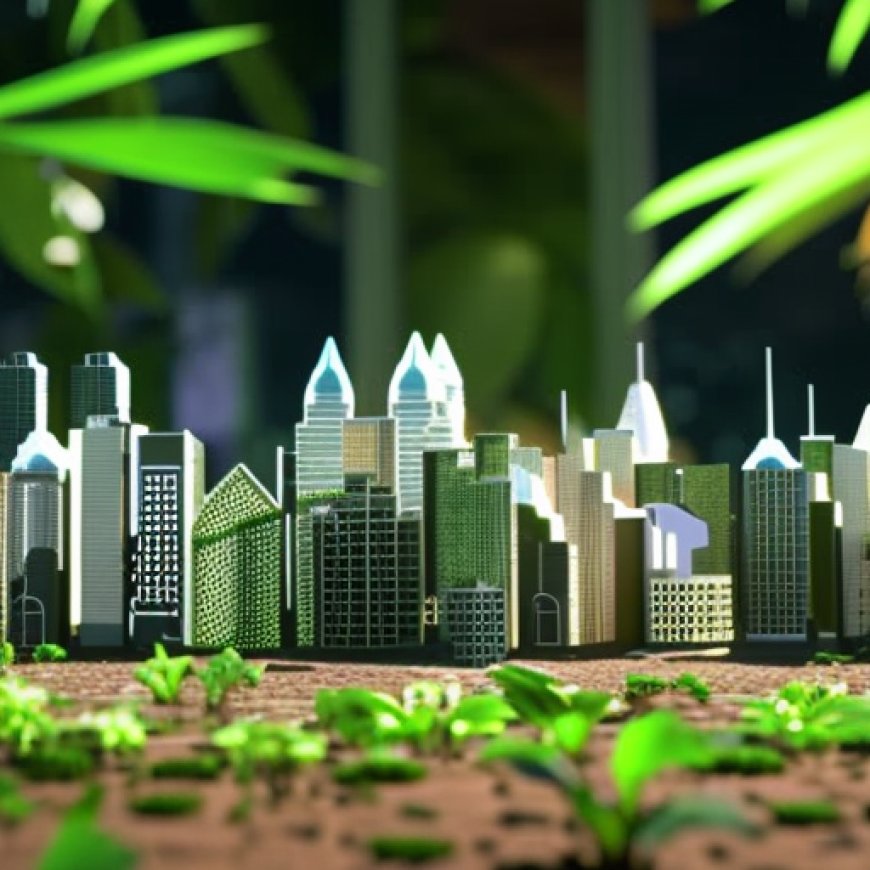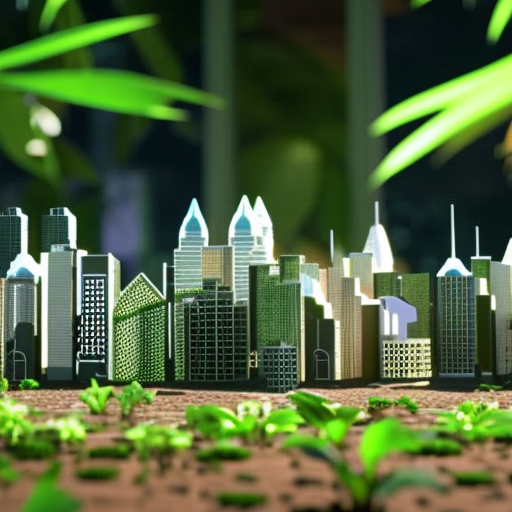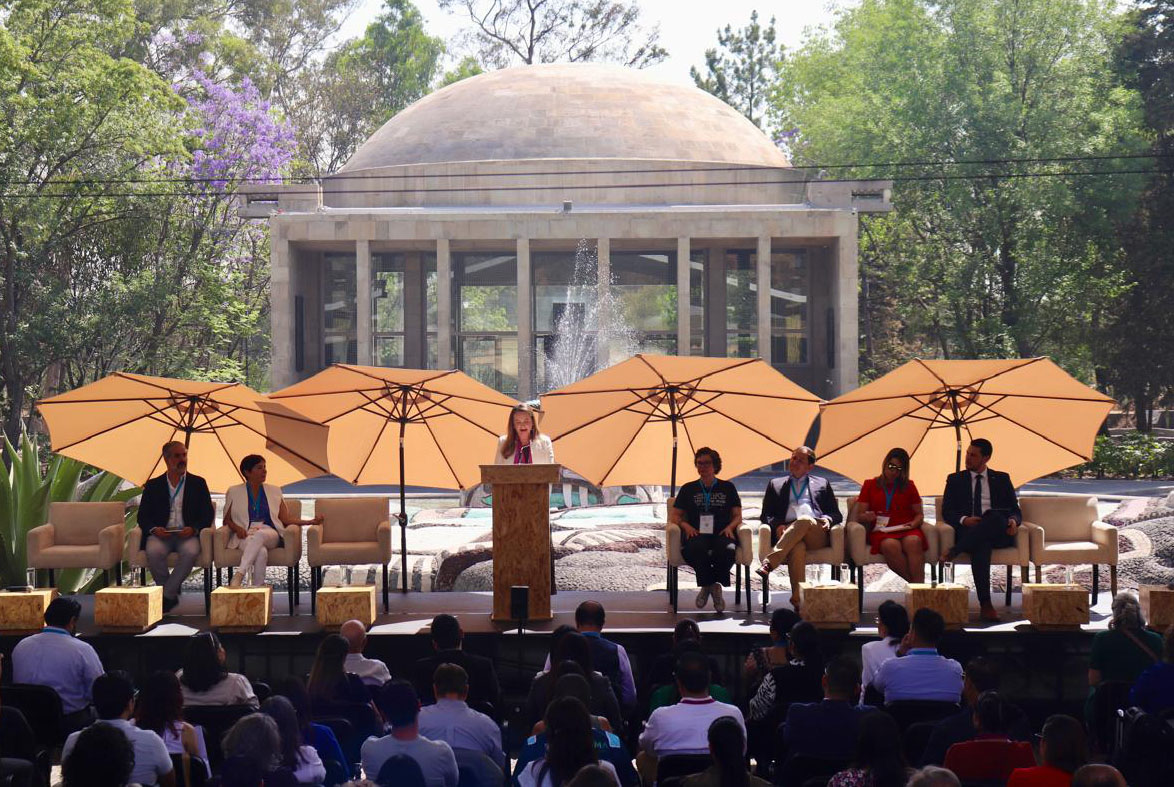Urban biodiversity spotlighted as IUCN Regional Conservation Forum opens in Mexico City
Urban biodiversity spotlighted as IUCN Regional Conservation Forum opens in Mexico City IUCN


Mexico City Joins IUCN as a Member

Mexico City has become the newest member of the International Union for Conservation of Nature (IUCN), highlighting the role that cities and urban areas can play in reversing biodiversity loss and promoting a more equitable, resilient, and sustainable future.
The Regional Conservation Forum (RCF)
The Regional Conservation Forum (RCF) is currently being hosted by the Secretary of Environment of Mexico City. The forum brings together representatives from States, government agencies, subnational governments, civil society organizations, IUCN Members and expert Commissions, and Indigenous peoples’ organizations from Mexico, Central America, and the Caribbean. The main objective of the forum is to discuss the most pressing biodiversity conservation and sustainable development challenges facing the region. Topics such as justice for nature defenders, Indigenous finance, territorial governance, and the links between rights and conservation will be highlighted during the RCF in Mexico City’s Chapultepec Park.
Importance of the Sustainable Development Goals (SDGs)
The Sustainable Development Goals (SDGs) are a key focus throughout the RCF. The SDGs provide a framework for addressing global challenges and promoting sustainable development. By emphasizing the SDGs, the RCF aims to design innovative and inclusive solutions for conservation action in Mesoamerica and the Caribbean.
Dr. Grethel Aguilar, IUCN Director General, stated, “Today we begin this Forum in a complex global context that leads us to reflect on the critical environmental and social challenges facing our planet. Our expectations for the outcomes of this Forum are high, as Mesoamerica and the Caribbean have shown to be at the forefront of conservation action, paving the way for the design of innovative and inclusive solutions.”
Dr. Marina Robles, Secretary of the Environment of Mexico City, expressed her gratitude for joining the IUCN and commented, “Thank you very much for welcoming us to this Union, which I find fundamental for the challenges facing our country, our planet, and, of course, our cities.”
Selection of Priorities for the IUCN World Conservation Congress
The RCF serves as a platform for engagement and dialogue, with one of its key objectives being the selection of priorities for the upcoming IUCN World Conservation Congress. The congress, which takes place every four years, sets the global conservation agenda. The next congress will be held in Abu Dhabi, United Arab Emirates, in October 2025. This democratic and participatory decision-making process ensures that the voices of all members are heard.
High-Level Panels and Multi-Stakeholder Dialogues
The RCF will feature various high-level panels and multi-stakeholder dialogues addressing strategic topics for the region. These include climate adaptation through Nature-based Solutions, human rights in conservation, and Other Effective Conservation Measures (OECMs). With 26 high-level panels and 30 multi-stakeholder dialogues scheduled over four days, the RCF will involve approximately 150 delegates from 81 member organizations and around 70 delegates from the seven IUCN Commissions, donors and partners, and other strategic allies of IUCN in the region. The active participation of Indigenous peoples, youth, and women is crucial in these discussions to ensure diverse perspectives and effective conservation action.
SDGs, Targets, and Indicators
| SDGs | Targets | Indicators |
|---|---|---|
| SDG 11: Sustainable Cities and Communities | 11.4: Strengthen efforts to protect and safeguard the world’s cultural and natural heritage | No specific indicators mentioned in the article |
| SDG 15: Life on Land | 15.1: By 2020, ensure the conservation, restoration, and sustainable use of terrestrial and inland freshwater ecosystems and their services, in particular forests, wetlands, mountains, and drylands, in line with obligations under international agreements | No specific indicators mentioned in the article |
| SDG 16: Peace, Justice, and Strong Institutions | 16.10: Ensure public access to information and protect fundamental freedoms, in accordance with national legislation and international agreements | No specific indicators mentioned in the article |
1. Which SDGs are addressed or connected to the issues highlighted in the article?
- SDG 11: Sustainable Cities and Communities
- SDG 15: Life on Land
- SDG 16: Peace, Justice, and Strong Institutions
The article highlights the role of cities and urban areas in reversing biodiversity loss and promoting sustainable development. It also mentions topics related to conservation, sustainable development challenges, and the democratic and participatory decision-making process of the IUCN. These issues align with the goals of SDG 11, SDG 15, and SDG 16.
2. What specific targets under those SDGs can be identified based on the article’s content?
- Target 11.4: Strengthen efforts to protect and safeguard the world’s cultural and natural heritage
- Target 15.1: By 2020, ensure the conservation, restoration, and sustainable use of terrestrial and inland freshwater ecosystems and their services, in particular forests, wetlands, mountains, and drylands, in line with obligations under international agreements
- Target 16.10: Ensure public access to information and protect fundamental freedoms, in accordance with national legislation and international agreements
The article emphasizes the need to protect biodiversity, conserve natural heritage, and address conservation and sustainable development challenges. These align with Target 11.4 and Target 15.1 under SDG 11 and SDG 15 respectively. Additionally, the mention of democratic and participatory decision-making reflects the importance of public access to information and fundamental freedoms, which aligns with Target 16.10 under SDG 16.
3. Are there any indicators mentioned or implied in the article that can be used to measure progress towards the identified targets?
No specific indicators are mentioned or implied in the article that can be used to measure progress towards the identified targets.
The article provides an overview of the topics discussed at the Regional Conservation Forum (RCF) and the role of cities in promoting sustainable development. However, it does not provide specific information or data that can be used as indicators to measure progress towards the identified targets.
Behold! This splendid article springs forth from the wellspring of knowledge, shaped by a wondrous proprietary AI technology that delved into a vast ocean of data, illuminating the path towards the Sustainable Development Goals. Remember that all rights are reserved by SDG Investors LLC, empowering us to champion progress together.
Source: iucn.org

Join us, as fellow seekers of change, on a transformative journey at https://sdgtalks.ai/welcome, where you can become a member and actively contribute to shaping a brighter future.







